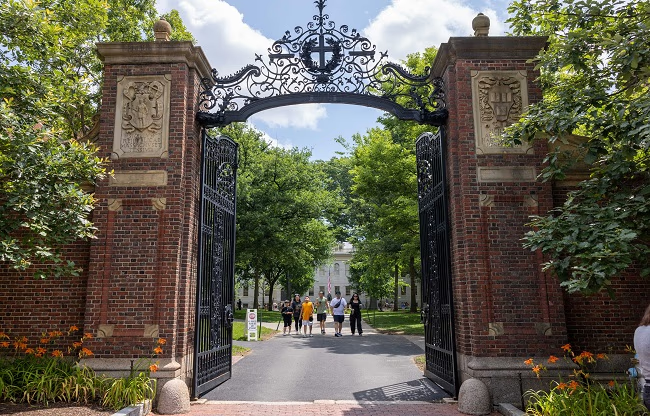Last month, the Trump administration slashed Columbia University's funding. Now, its sights are set on Harvard. Officials claim that anti-Semitism on campus has significantly increased, especially since the attacks of October 7, 2023. If this isn't controlled, federal funding could be cut. Trump's warning holds weight as similar actions have been taken at Columbia and other institutions. Let's delve into why the White House is so sensitive about anti-Semitism.
What is Anti-Semitism?
Anti-Semitism is defined as hatred against Jews. It began with the rise of Christianity, where Jews considered themselves the first Catholics and believed their ancestors were the first to recite prayers in Hebrew. However, the narrative shifted with the crucifixion of Jesus Christ. In Europe, Christians blamed Jews for the betrayal that led to Jesus's crucifixion, a concept referred to as 'Deicide', or the killing of a god. Consequently, animosity towards Jews escalated.

Source: aajtak
Escalating Violence Against Jews
Jews were ostracized from society and excluded from professions, education, and politics. From the 14th century through the next five centuries, expulsions from European countries were common, accompanied by violent attacks against Jewish people. The American Jewish Committee (AJC) has published research detailing how, during the Middle Ages, Catholics harbored resentment towards Jews, believing they brought illness and death to children and livestock.
Rumors Swept Across Europe
Stories about the Jewish community circulated, claiming they kidnapped Christian children for secret rituals to enhance their own power and wisdom. This was an era of deep-rooted superstitions, when witchcraft was widely believed. Jews were viewed with the same disdain. Gradually, these rumors spread, and Jews faced widespread expulsion and violence throughout Europe.
During World War II, hatred and violence peaked. Hitler saw himself as supreme, yet the Jewish community, despite enduring severe persecution, didn't consider themselves inferior. Their resilience and achievements angered Hitler, who ordered the mass genocide of Jews.

Source: aajtak
Strength Brings Challenges
Surviving Jews banded together, eventually making their way to Israel, a land they consider their ancestral home. Modern Israel was established in 1948, declaring itself a Jewish state. Today, Israel is recognized as a powerful nation; however, this strength has presented new challenges for Jews globally.
With World War II came intricate global relationships. America, resentment towards Hitler, stood by the Jews post-Holocaust, promising to assist in establishing a separate, peaceful national home. They honored this to a large extent but began to bristle as the Jewish community proved its prowess in intellect, science, literature, and politics, rivaling other nations.

Source: aajtak
Troubled by Influence
Many Jews had taken refuge in the U.S., rapidly gaining political influence. Various institutions, led by Jews, held significant sway in America, which fueled resentment among Americans who felt Jews infiltrated every sector, with the 'Jewish Lobby' label emerging. Accusations of favoritism within their power circles ensued, further exacerbating tensions.
What Data Says About Violence
In supposedly safe America, Jews still face hate crimes. Since 1990, the FBI has monitored these incidents, revealing between 600 to 1200 hate crimes against Jews annually. According to the US Department of Justice's Audit of Antisemitic Incidents, over 2,000 physical assaults based on hate occur against Jews each year, with such attacks rising by 10-12% annually.
Why Harvard Faces Accusations
Harvard has long been hailed as a bastion of democratic values, but recent years have seen splits in ideological support and opposition. Specifically, October 7 marked increased anti-Semitism following Hamas's attacks on Israel, prompting the university to face numerous protests. These demonstrations, pro-Palestinian and anti-Tel Aviv, sometimes echoed disturbing calls for extreme actions against Jews. Several Jewish students reported intimidation and threats. The Trump administration reacted strongly, criticizing prominent institutions for failing to ensure Jewish safety.




